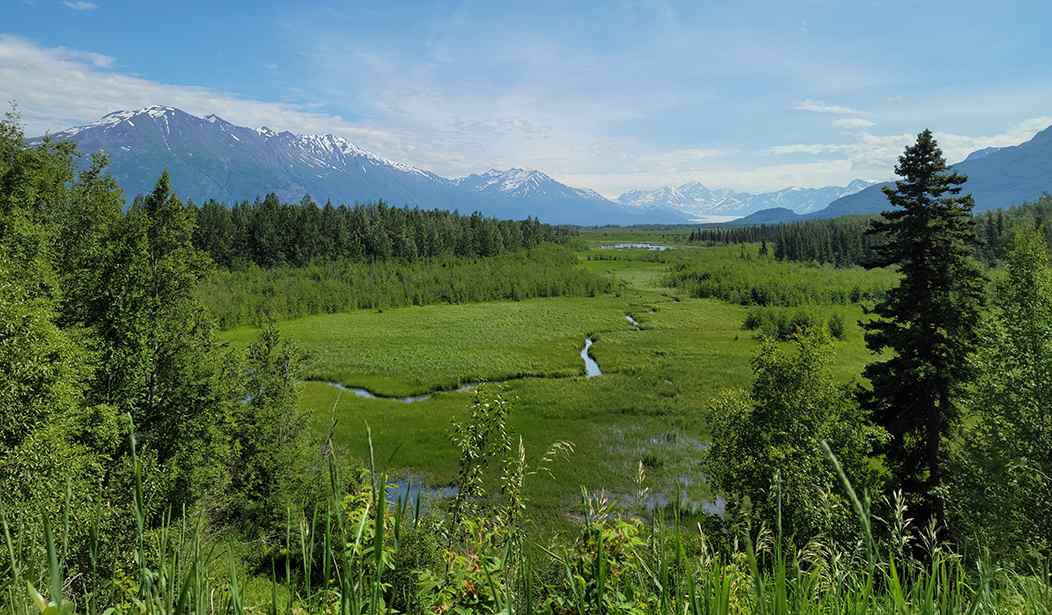This just in: Carbon dioxide (CO2) is good for plants. In fact, plants can't live without it; the process of photosynthesis is how plants turn carbon and sunlight into sugars and carbohydrates - food. Whenever you eat a carrot, a potato, or a mess of collard greens, make sure to thank photosynthesis!
Now, there is a level of CO2 that we don't want. CO2 is a greenhouse gas; it's not as serious as methane or even water vapor, but runaway CO2 (from non-biological sources) is why Venus is a pressure cooker. But Earth is nowhere near that, and while through much of the planet's history it'd been warmer than now - sometimes a lot warmer - CO2 is, generally, a good thing. A little bit more CO2, according to some recent studies, is actually greening the planet. Watts Up With That's H. Sterling Burnett has the news.
New research published in the journal Remote Sensing of the Environment confirms, yet again, what regular readers of Climate Change Weekly and Heartland’s other climate change products have long known: the Earth is greening in general, and increased carbon dioxide levels and better moisture conditions are responsible.
The study, from a team of 17 researchers at various universities and research facilities in the United States and China, reports that in 2020 the Earth’s “greenness”—its vegetation coverage and mass—reached its highest levels since the early 2000s and probably longer.
Using remote sensing devices and indicators supplemented by machine learning, the researchers determined the greening was “largely linked to continuous growth in boreal and temperate vegetation” and “[c]omplemented by a transient tropical vegetation boost due to increased rainfall.”
This won't be covered by the American legacy media, either. It doesn't fit the narrative. But it is a study worth consideration, whether the climate scolds like it or not. And note that this data set stops at 2020; the trend may well have continued since.
Here's the fun thing: We're seeing some local evidence of this right now, right here in the Great Land. Our growing seasons are lengthening, slowly, due to slightly warmer temperatures, and Alaskan agriculture is expanding, to the point where the state legislature was considering the formation of a state department of agriculture. That didn't happen, but the slight warming we are experiencing - and, yes, the climate has been on a gradual warming trend since the last glaciation - has the potential to open up even more northern lands for agricultural use.
As I mentioned above, the beneficial CO2-induced greening of the Earth, with longer growing seasons and improved rainfall and plant efficiency, is not news to my readers. Climate Realism has published nearly 60 stories citing different research papers and studies that document CO2-induced greening, and hundreds more examining how greening has improved crop yields and production and reduced starvation, hunger, and malnutrition.
In addition, Heartland discussed global greening with award-winning physicist Will Happer during the 78th episode of the Climate Realism show, and we have discussed global greening and its continuing agricultural boost on a number of panels at Heartland’s series of 15 International Conferences on Climate Change.
The summary of all this is that the Earth has feedback systems. Increased CO2 greens the earth, and plants, especially forests, are huge carbon sinks. Forget the rain forest, by the way; the real "lungs of the planet" are the forests of the great northern taiga.
Mr. Burnett concludes:
Various analyses of the so-called “Social Cost of Carbon” calculations indicate global greening and its effects on agriculture alone may mean that the metric would be better labeled the Social Net Benefit of Carbon.
Global greening is an established fact, and this study is just one more data point of proof.
Our planet is a pretty amazing place.
See Also: A Look At the One Practical 'Renewable' Energy - Geothermal
Stupidity on a Global Scale: UK's Government Plans to Blot Out the Sun
The Earth has many systems, all interacting. As I'm continually pointing out on this topic, the planet's climate is a vast, chaotic, complex system that we can't completely understand. But our understanding does improve with each study, with each realization, with each new set of data uncovered and recorded. There's also a reason people refer to the "balance of nature," and that's because nature strikes a balance. In this case, we have several new studies - by all means, read them - that are showing the benefits of a small increase in CO2.
As the late Senator Daniel Patrick Moynihan pointed out, everyone is entitled to their own opinions, but not their own facts.















